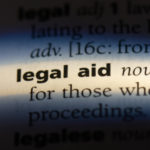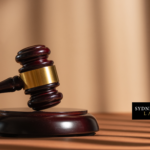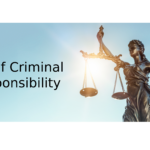The Offence of Sexual Assault

Former Hollywood heavyweight Harvey Weinstein has been charged in Los Angeles with felony offences including forcible rape, forcible oral copulation, sexual penetration by use of force and sexual battery by restraint.
Charges were laid just hours after Mr Weinstein appeared in a New York courtroom for the start of his criminal trial on similar charges in a separate case.
Weinstein maintains his innocence and is vigorously denying all allegations of “non-consensual sexual activity”. He has pleaded not guilty in the New York case. But many believe he faces an uphill battle to protect his freedom let alone restore his reputation, as more than 80 women have come forward with claims of sexual impropriety since 2017.
The allegations are essentially that Weinstein used his power and influence to take advantage of young female assistants and actresses, then employed a powerful team of lawyers and media allies to pressuring them to remain silent.
In recent weeks, the Weinstein Company reached a tentative $25 million settlement with dozens of women who have accused him of preying on them.
The Los Angeles Case
The two LA complainants reported incidents to police in 2017.
Their claims were then presented to the district attorney’s office later that year for determination as to whether criminal charges would be laid.
But charges have only just been laid due partly, according to media reports, to legal challenges surrounding the specific cases.
The Los Angeles County District Attorney’s Office previously released a statement to the effect that eight women came forward against Weinstein. Three of those cases, it said, were outside of the statute of limitations, two resulted in the present charges being brought, while others are still under investigation.
There is no longer a limitation period for sexual assaults in California, due to a law introduced in September 2016, which applies to more recent alleged incidents.
There is no limitation period for prosecuting sexual assault cases in New York.
The New York Trial begins
The New York trial began earlier this week, with Weinstein being accused of raping a woman in 2013 and forcibly performing oral sex on another in 2006.
He faces five felony charges based on the claims by two women, one of whom remains anonymous.
Life in prison
New York law, predatory sexual assault is viewed almost as seriously as murder. The most serious charge against Mr Weinstein, felony predatory sexual assault, carries a maximum penalty of life in prison.
He faces four charges of that offence, along with one count of criminal sexual act in the first degree and one count each of first-degree rape and third-degree rape.
‘Prior bad acts’ witnesses
The trial is expected to last about eight weeks, and will rely heavily on the testimony of six women even though he is only charged with assaulting two of them.
Similarly, six women took the witness stand last year in a Pennsylvania courtroom to accuse Bill Cosby of drugging and sexually assaulting them, even though he was charged with and convicted of attacking just one – former basketball coach Andrea Constand.
Legal experts say that the use of these so-called “prior bad acts” witnesses – women with credible sexual assault claims against a defendant which fall outside the statute of limitations for prosecution – are an increasingly vital tool for prosecutors at a time when the #MeToo movement is drawing forth long-delayed reports of sex abuse.
However, critics say that these witnesses can serve to sway the case unfairly against the defendant, because in many instances real substantial, forensic evidence is lacking, and the jury is relying on spoken testimony only. This in turn, prompts defence lawyers to try to discredit these witnesses which can be difficult for them in taking the stand.
The issue of consent
As one legal expert in the US has commented: “What is on trial is ‘what is rape, versus sexual harassment or bad behaviour?’ We all can understand that anything [sexual] you do with a child, for instance, is non-consensual – but the trouble we get into is these presumptions about being unable to say no, unable to bargain, unable to get away.”
“Do all these apply to adult women?” she wondered. “Are we supposed to assume that an adult woman is just like a child because she wants that job so much? What are the presumptions that flow to women?”
Two of the female actresses who have accused Harvey Weinstein, Rose McGowan, and Rosanna Arquette who helped to fuel the #MeToo movement were protesting outside court in New York, saying they’re hopeful that justice will be served.
The offence of sexual assault in NSW
Sexual assault is an offence under section 61I of the Crimes Act 1900 (NSW) (‘the Act’) which carries a maximum penalty of 14 years’ imprisonment.
It is defined as where a person “has sexual intercourse with another person without the consent of the other person and who knows that the other person does not consent to the sexual intercourse”.
What is sexual intercourse?
‘Sexual intercourse’ is defined by section 61H of the Act as:
“(a) sexual connection occasioned by the penetration to any extent of the genitalia (including a surgically constructed vagina) of a female person or the anus of any person by:
(i) any part of the body of another person, or
(ii) any object manipulated by another person,
except where the penetration is carried out for proper medical purposes, or
(b) sexual connection occasioned by the introduction of any part of the penis of a person into the mouth of another person, or
(c) cunnilingus, or
(d) the continuation of sexual intercourse…”
What is consent?
Section 61HE of the Act provides that a person consents to sexual activity if he or she freely and voluntarily agrees to it.
The section proceeds to state that an alleged offender knows there is no consent if he or she engages in sexual activity, or incites anyone to do so, in circumstances where he or she:
- knows the alleged victim does not consent, or
- is reckless as to whether the alleged victim consents, or
- has no reasonable grounds to believe the alleged victim consents.
In deciding whether there is consent, the court must consider any steps taken by the alleged offender to ascertain whether there is consent.
The court cannot take into account any self-induced intoxication by the alleged offender.
The section makes clear there is no consent where the alleged victim:
- does not have the capacity to consent due to factors such as their age (outlined above) or cognitive ability, or
- does not have the opportunity to consent because they are unconscious or asleep, or
- consents because of threats of force or terror, or
- consents due to being unlawfully detained, or
- consents because of a mistaken belief:
(a) as to the identity of the alleged offender,
(b) that the two are married,
(c) that the activity is for health or hygienic purposes, or
(d) that arises through any fraud.
The grounds upon which it may be established that the alleged victim did not consent include that he or she:
- was substantially intoxicated,
- was intimidated, coerced or threatened in any way, or
- was under the authority or trust of the alleged offender.
The section further makes clear that a failure to resist the activity not in itself to be regarded as establishing consent.
What are the defences?
In addition to the requirement that the prosecution must prove each element of the relevant offence, it must also disprove beyond reasonable doubt any of the following defences if properly raised:
- Duress, which is where you were threatened or coerced,
- Necessity, where the act was necessary to avert danger, and
- Self-defence, where you engaged in the act to defend yourself or another.
Charged with a sexual offence?
If you have been accused of a sexual offence and require the assistance of lawyers who are vastly experienced and have an outstanding track record of defending these cases, call Sydney Criminal Lawyers® 24/7 on (02) 9261 8881 to arrange a free first conference.








